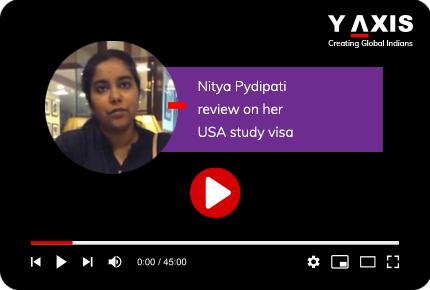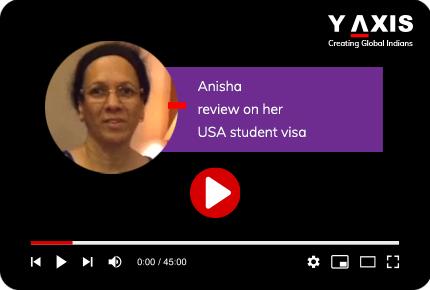- Points Based
- Most people below the age of 51 years old, with an occupation (listed on each country’s list), 2+ years of work experience & good English / French are eligible for this
- It is the most popular way of settling overseas
- Similar to skilled immigration
- Occupation must be listed on the state list
- Long term visa converted to PR & citizenship
- Very popular option for most countries
- Candidates who find a full time job & an employer overseas are eligible for this visa
- test
Y-Axis offers job search services to help candidates market themselves to overseas employers. We have a high success rate & have been very successful with this. For more information, please click here.
- Some countries offer permanent residency anyone who has a parent, brother, sister, uncle, aunt or first cousin overseas
- The sponsoring relative needs to be an citizen or a permanent resident of that country
- test
- Many countries offer a temporary or PR visa in exchange for an investment
- Investment amounts can range from $50,000 to $500,000 or more



Johns Hopkins University, master’s programs, admission process
Johns Hopkins Masters Programs offer top-ranked courses for 2025 with details on admissions, fees, scholarships, and opportunities for international students.
Johns Hopkins University MS Programs, Rankings, Fee
Do you want to attend one of America's most prestigious institutions? Johns Hopkins University ranks among the most selective schools in the United States with a selective acceptance rate of 7.56%. The university holds the #6 spot among National Universities in the 2025 edition of Best Colleges and stands at #32 in the QS World University Rankings 2025. These rankings show Johns Hopkins' continued excellence among the world's top academic institutions.
Johns Hopkins University offers more than 400 undergraduate and graduate programs at its campuses in Baltimore, Washington D.C., and international locations in Italy and China. The acceptance rate makes admission highly competitive. Students need an average weighted GPA of 3.9 and SAT scores between 1530 and 1580. The cost of attendance runs to about $65,230 for tuition and fees.
This piece provides all the essential details about Johns Hopkins University admissions, available degrees, scholarship opportunities, and the university's unique strengths. Johns Hopkins graduates earn an average salary of $127,044 within six months after graduation. The university's powerful alumni network includes former U.S. President Woodrow Wilson and businessman Michael Bloomberg, making a Johns Hopkins education a great way to secure your future.
*Need assistance to study in USA? Y-Axis is here to assist you in all the ways.
Johns Hopkins Masters Programs: Duration & Fees Breakdown
If you're planning to study in the U.S., Johns Hopkins masters programs are among the most respected globally. Known for excellence in research, medicine, engineering, and international affairs, Johns Hopkins University offers a wide range of MS programs designed to equip students with in-demand skills and global recognition.
Below is a detailed table covering some of the top Johns Hopkins masters programs, their typical duration, and estimated tuition fees:
| University | MS Programs | Duration | Fees (Approx.) |
|---|---|---|---|
| Johns Hopkins University | MS in Biomedical Engineering | 2 years | $60,480/year |
| Johns Hopkins University | MS in Computer Science | 1.5 – 2 years | $61,200 total |
| Johns Hopkins University | MS in Public Health (MPH) | 11 months – 2 years | $75,000 total |
| Johns Hopkins University | MS in Finance | 1 year (full-time) | $69,000 total |
| Johns Hopkins University | MS in Environmental Engineering | 2 years | $58,000/year |
| Johns Hopkins University | MS in Global Security Studies | 12 – 24 months | $50,000 total |
| Johns Hopkins University | MS in Applied Economics | 1.5 – 2 years | $52,000 total |
| Johns Hopkins University | MS in Data Science | 1.5 – 2 years | $61,200 total |
| Johns Hopkins University | MS in Energy Policy and Climate | 1.5 years | $49,000 total |
| Johns Hopkins University | MS in Organizational Leadership | 12 – 24 months | $47,000 total |
Whether you're interested in engineering, public health, or international policy, Johns Hopkins masters programs provide the academic foundation and career readiness you need to thrive globally.
Global Standing of Johns Hopkins University
Johns Hopkins University stands tall as one of the world's premier academic institutions, proven by its remarkable performance in global university rankings. Recent assessments showcase the university's excellence in multiple disciplines and evaluation frameworks.
QS World University Rankings 2025: #32 Globally
The QS World University Rankings 2025 ranks Johns Hopkins University at #32 globally. This represents a small drop from #28 in 2024. The university remains firmly in the world's top 50 institutions. The Johns Hopkins ranking in QS evaluations has seen changes in the last decade, from #16 in 2012 to its current spot.
The impressive john hopkins university world ranking stems from outstanding performance in key areas. The university scores 86 in academic reputation, showing its strong standing with peers and experts worldwide. Johns Hopkins University also shines with its global outlook - international students make up about 20% of enrollment, with an international student ratio of 41% in QS metrics.
Subject-wise Rankings: Engineering, Medicine, and Public Health
Johns Hopkins University really sets itself apart through excellence in medicine, public health, and engineering:
- The Bloomberg School of Public Health has held the #1 spot among public health schools since 1994
- U.S. News & World Report places Johns Hopkins University at #2 in Clinical Medicine and Surgery
- The School of Medicine ranks #2 nationally in Medicine (Research)
- The Whiting School of Engineering's Biomedical Engineering program leads the nation at #1
- Environmental Health and Engineering ranks #3 worldwide in public, environmental, and occupational health
The Bloomberg School dominates specialty areas in public health: #1 in Environmental Health Sciences, Epidemiology, Health Policy and Management, Social and Behavioral Sciences, and #2 in Biostatistics. The school teaches more than 3,200 students and employs over 1,800 faculty members. Research funding at the school surpasses INR 42,190.23 million annually.
Johns Hopkins University Ranking vs Ivy League Institutions
Johns Hopkins University matches or surpasses many Ivy institutions in various rankings, despite not being an Ivy League member. U.S. News & World Report ranks john hopkins university #6 nationally (tied), placing it among America's most prestigious institutions.
Times Higher Education World University Rankings put Johns Hopkins University at #16 globally and #10 among U.S. schools, on par with many Ivy League institutions. Oxford University leads these rankings, with MIT, Harvard, Princeton, and Cambridge following.
Johns Hopkins University often beats top Ivy League schools in specific fields. Its #1 ranking in Public Health and Biomedical Engineering shows areas where Johns Hopkins leads all American institutions, including every Ivy League school.
U.S. News & World Report places Johns Hopkins University as the 13th best university globally. The university earned a perfect score of 100 in the Times Higher Education rankings' 'Industry' categories, highlighting its strength in breakthroughs, knowledge sharing, and commercial funding.
Johns Hopkins University Available programs
Johns Hopkins University stands tall with almost 150 years of educational excellence. Its nine divisions offer an impressive selection of academic programs. Students can choose from more than 400 programs in fields like health professions, arts and music, humanities, natural sciences, engineering, international studies, education, and business.
The university's vibrant academic community includes more than 30,000 full- and part-time students. Students can earn everything from certificates to doctoral degrees, which makes it possible to achieve almost any educational goal.
Academic credentials range from certificates and diplomas to bachelor's, master's, and doctoral programs, plus various professional practice credentials. Johns Hopkins University lets students pursue multiple qualifications at once through combined-degree programs like BA/MA, BS/MBA, and MD/PhD tracks.
The nine schools at Johns Hopkins University each bring their unique strengths while contributing to the university's academic excellence:
-
The Bloomberg School of Public Health has held the #1 position among public health schools nationwide since 1994. Students can earn specialized certificates in Global Health, Health Communication, and Public Health Economics.
-
The Carey Business School's AACSB-accredited programs emphasize business analytics, finance, healthcare management, and real estate.
-
The Krieger School of Arts & Sciences offers more than 60 full-time and part-time graduate programs across arts, humanities, natural and social sciences.
-
The School of Medicine ranks among the world's finest medical institutions and trains students in internal medicine, women's health, geriatrics, and pediatrics.
-
The Whiting School of Engineering prepares students for future-critical fields like robotics, biomedical engineering, cybersecurity, and systems engineering.
Undergraduate students at the Homewood campus can choose from 52 academic majors and 50 minors. Johns Hopkins University doesn't require a core curriculum, which gives students freedom to mix and match their academic interests.
Graduate students at Johns Hopkins University can pursue specialized programs such as the Master of Science in Anatomy Education, Medical and Biological Illustration (M.A.), and Clinical Anaplastology (M.S.). The institution's graduate programs in Biomedical Informatics and Data Science help create leaders in health information technology.
Johns Hopkins University believes in innovative teaching methods. Johns Hopkins postdoc Herbert Baxter Adams brought the seminar method from Germany, which showed that students learn better through active participation rather than just listening to lectures. This hands-on approach to learning remains fundamental to the Johns Hopkins educational philosophy.
Johns Hopkins University creates educational pathways that develop tomorrow's leaders and lifelong learners, whether they're training in world-class medical facilities or studying across multiple disciplines.
Top Programs Of Johns Hopkins University:
|
Name of Program |
Total Annual Fees (USD) |
|
MSc Applied Economics |
47,482 |
|
MBA |
62,450 |
|
MSc Civil Engineering |
55,629 |
|
MSc Information Systems |
74,647 |
|
MSc Biomedical Engineering |
55,629 |
|
MSc Computer Science |
59,243 |
|
MSc Applied Health Sciences Informatics |
55,131.5 |
|
MSc Marketing |
74,647 |
|
MSc Finance |
74,647 |
|
MSc in Nursing [MSN]/Master of Public Health [MPH] |
70,023 |
|
MA Applied Mathematics and Statistics |
55,629 |
*Confused to choose which course to pursue? Avail Y-Axis course recommendation services to choose the best.
Top-Ranked Master’s Programs at Johns Hopkins
Johns Hopkins University offers several outstanding master's programs that are known for their academic excellence, career prospects, and worldwide recognition. These specialized programs show the university's dedication to shaping future leaders in multiple fields.
MS in Data Analytics and Policy
Johns Hopkins University's MS in Data Analytics and Policy program combines data science with public policy expertise. Students can complete this 12-course degree in just 16 months, with both online and on-site options available. The program has essential data science foundations and policy analysis courses that prepare students for careers in government agencies, nonprofits, and data-focused organizations.
Students work with actual datasets and policy cases throughout their studies, which makes this program unique. The program's value is clear - graduates typically see their salaries increase by 33% after completing the degree.
Master of Science in Biochemistry and Molecular Biology
The Bloomberg School of Public Health hosts this comprehensive program that offers exceptional research opportunities at one of America's leading medical institutions. The Johns Hopkins University ranking consistently places at the top globally for biomedical sciences, which reflects in the program's curriculum.
Students gain hands-on laboratory experience while learning theoretical concepts in biochemistry, cellular and molecular biology, and biostatistics. Many graduates move on to doctoral studies or take positions in pharmaceutical and biotechnology companies.
Master of Health Science (MHS) in Global Health Economics
The Department of International Health runs this specialized degree that meets the growing need for health economists with international expertise. The john hopkins university program blends economic theory with practical applications in global health systems.
Students study health financing, economic evaluation of health programs, and quantitative methods. The Johns Hopkins ranking in public health has held the #1 spot nationally, and students benefit from faculty connections with organizations like the World Bank and WHO.
MBA with STEM Designation at Carey Business School
The Carey Business School's MBA program features a STEM designation that gives international students extended Optional Practical Training periods—up to 36 months of U.S. work authorization after graduation. This designation shows the program's strong focus on analytics and quantitative skills.
Students learn data-based decision making through business analytics, operations research, and financial modeling courses. The johns hopkins university cost proves worthwhile - graduates earn median starting salaries of $115,000.
MPH and Public Health Leadership Programs
The Bloomberg School's Master of Public Health (MPH) remains Johns Hopkins University's signature program. The MPH program has a 31% acceptance rate, which is more accessible than the university's overall 7.5% rate.
Students can specialize in:
- Health Policy and Management
- Epidemiology and Biostatistics
- Global Environmental Sustainability
- Health Systems and Policy
The Bloomberg School has ranked #1 in public health education since 1994. The MPH program offers flexible scheduling - students can finish in 11 months full-time or 2-3 years part-time, which works well for professionals.
The MHS in Health Economics and Outcomes Research teaches students how to evaluate and improve healthcare systems. These skills are crucial as healthcare systems worldwide focus on becoming more efficient and effective.
Admissions Criteria and Acceptance Rate
Getting into Johns Hopkins University is one of the toughest challenges in American higher education. Students need outstanding academic credentials and an exceptional application profile to stand a chance.
Johns Hopkins University Acceptance Rate: 7.5%
The johns hopkins university acceptance rate has stayed very competitive at around 7.5% in the last three years. The Class of 2028 saw an overall acceptance rate of 7.52%, with Early Decision at 13.61% and Regular Decision at 6.07%. This makes Johns Hopkins one of the most selective schools in the nation. Regular Decision rates have stayed close to 6% for several years. Students who are serious about attending should consider applying early.
Average GPA, SAT, and ACT Requirements
Johns Hopkins University looks for stellar academic performance from its applicants. The Class of 2028 admitted students showed these impressive numbers:
- 99% ranked in the top 10% of their high school class
- Average unweighted GPA of 3.95
- SAT middle 50th percentile range: 1530-1570
- ACT middle 50th percentile range: 34-36
Students at Johns Hopkins typically score 1550 on the SAT, with 790 in Math and 760 in Reading+Writing. While no strict minimum requirements exist, john hopkins university accepts students who excel in the most challenging courses available.
Application Portals: Common App, Coalition App, and JHU Portal
Students can apply to Johns Hopkins University through The Common Application or The Coalition Application with the Hopkins Supplement. A complete application package needs:
- A counselor recommendation letter
- Two teacher recommendation letters
- Standardized test scores (SAT or ACT)
- High school transcript
johns hopkins university admissions suggests Early Decision applicants take standardized tests by October of senior year. Regular Decision applicants should complete testing by December.
English Proficiency Requirements: TOEFL, IELTS, DET
International students who don't speak English as their primary language must prove their English skills. The johns hopkins university suggests taking these tests if your SAT Evidence-Based Reading and Writing score falls below 690 or ACT Reading and English sections are under 30.
johns hopkins expects these minimum scores:
- TOEFL (iBT): Minimum 100 total with preferred sub-scores of 26 (Reading), 26 (Listening), 22 (Writing), and 25 (Speaking)
- IELTS: Score of 7.0 or higher on each band
- Duolingo English Test (DET): Composite score of 120 or higher with preferred sub-scores of 125 (Literacy), 120 (Conversation), 135 (Comprehension), and 105 (Production)
- Cambridge English Exam: C1 Advanced or C2 Proficiency with a score of 185 or higher
The high johns hopkins university ranking matches these strict admission standards. The university carefully picks students who show they can thrive in its challenging academic setting.
Cost of Attendance and Living Expenses
The right financial planning helps students prepare well for their academic life at Johns Hopkins University. Let's look at the expenses you need to know about and how to plan for this big investment.
Tuition Cost:
As the tuition costs at JHU depend on the academic disciplines and the schools they are housed in, the fees for various courses are as follows.
|
School |
Fees (USD) |
|
School of Arts and Sciences |
54,268 |
|
School of Engineering |
54,268 |
|
Peabody Institute |
52,041 |
The tuition costs for graduate courses as per the schools are as follows:
|
School |
Tuition Fees (USD) |
|
School of Advanced International Studies |
Washington: $51,304; Bologna: $37,228.5 |
|
School of Engineering |
54,246 |
|
School of Medicine |
53,573 |
|
School of Nursing |
Full-Time MSN: $39,675 Full-Time MSN/MPH: $54,404 |
|
School of Education |
$804 per credit |
|
Peabody Institute |
$51,809 |
|
Carey Business School |
$58,876 |
|
School of Public Health |
$68,063 |
|
School of Arts and Sciences |
$54,269 |
Johns Hopkins University Cost: Tuition and Housing Breakdown
The Cost of Attendance (COA) at Johns Hopkins University includes direct billed expenses and other estimated costs. Undergraduate tuition for 2024-2025 is INR 5,461,946.58. This amount rises to INR 5,625,644.66 for the 2025-2026 academic year.
Your housing choice will affect your total costs:
- On-Campus (Freshman): INR 1,009,865.24 for housing and INR 690,400.85 for food
- On-Campus (Sophomore): INR 1,125,466.45 for housing with the same meal plan costs
- Off-Campus: INR 963,540.37 for housing and INR 296,512.90 for food
- Living with Parents: INR 351,107.06 for housing and INR 243,943.88 for food
New students pay a one-time matriculation fee of INR 42,190.23. The total first-year COA comes to about INR 7,507,834.99.
Annual Living Expenses in Baltimore
Baltimore's living costs are lower than other East Coast cities. This makes john hopkins university fees easier to manage. Housing costs near the university vary based on the neighborhood you choose.
A one-bedroom apartment near campus costs between INR 84,380.50 and INR 125,000 monthly. Students who share housing pay less - usually INR 52,062.74 to INR 84,380.50 per person.
Here's what you'll spend monthly:
- Utilities: INR 10,969.46 to INR 12,657.07
- Groceries/Food: INR 25,314.14 to INR 33,752.20
- Transportation and personal expenses: INR 61,260.21 yearly
- Books and course materials: INR 114,419.89 yearly
Cost Of Living
Foreign students should assess the cost of living before applying for admission to JHU. The on-campus cost of living at Johns Hopkins University is tabulated below:
|
Type of Expense |
Cost (USD) |
|
Room and Meals |
12.68 lakhs |
|
Personal Expenses |
89,630 |
|
Books and Supplies |
95,900 |
|
Travel Cost (Average) |
51,350 |
Johns Hopkins University Fees for International Students
International students must budget for extra required expenses. Students with F1/J1 visas must have the university's health insurance coverage.
Health insurance for 2025-2026 costs INR 277,780.44, split between two semesters. Other health-related fees include:
- University Health Service Fee: INR 75,942.41
- Dental Insurance: INR 16,876.09
- Vision Insurance (optional): INR 2,278.27
Graduate program costs differ by school. Medical students' first-year COA is INR 8,926,439.13, which increases to INR 9,443,016.25 in the second year because of USMLE exam costs. Ph.D. students should plan for first-year expenses around INR 8,593,727.01.
The johns hopkins university ranking shows it's among the best schools worldwide. The costs match other top universities while providing excellent academic value.
Scholarships and Financial Aid Opportunities
Johns Hopkins University gives strong financial support that makes its prestigious education available to students from all backgrounds. The johns hopkins university provides many types of financial aid. Talented students can pursue their academic dreams whatever their financial situation.
Merit-Based Scholarships for Graduate Students
Johns Hopkins University rewards outstanding academic and personal achievements through merit scholarships. These awards don't need repayment and work alongside need-based aid to lower your costs. Graduate programs feature several notable options:
- MBA students can receive up to INR 55.6 lakhs through the Dean's Scholarship
- Exceptional candidates might qualify for the Carey Business Fellowship worth up to INR 72.2 lakhs
- High achievers from Baltimore City and Washington, DC public schools can benefit from the Cummings Scholars Program
The best part? Your program application automatically puts you in the running for these scholarships—no extra paperwork needed.
Need-Based Aid and Average Award Amounts
John hopkins university provides substantial need-based support. First-year students receive an average need-based scholarship of INR 5400.35K. Last year, johns hopkins university gave out INR 14175.92M in need-based scholarships that helped 53% of students.
Public health master's students can get a 75% reduction in second-year tuition through the Master's Tuition Scholarship (MTS). Bloomberg Philanthropies also helps MSPH students by covering up to 50% of their tuition through need-based scholarships.
External Fellowships and Research Grants
johns hopkins ranking as a top research institution opens up many funding opportunities. The university keeps updated lists of federal and private funding options for graduate students. Students can apply for prestigious awards like the AAUW American Fellowship (INR 2109511.27) and Blakemore Freeman Fellowships.
Scholarship Application Process and Deadlines
Submit your SOPHAS application by February 15 to get priority consideration for MSPH need-based scholarships. You'll need to complete the CSS Profile application with school code 5315. Maryland residents should submit the Howard P. Rawlings Guaranteed Access Grant application by March 1.
Start by looking into program-specific scholarships since each school offers different options. Then check out external funding through the Office of Foundation Relations.
International Student Support and Campus Life
Johns Hopkins University stands out with its vibrant international community. The university provides complete resources tailored for global students. Students from different backgrounds excel in their academic pursuits and social life in this welcoming environment.
Baltimore Campus Overview and Facilities
The scenic Homewood campus serves as the primary academic center at Johns Hopkins University. This 140-acre campus sits in North Baltimore. Students enjoy a classic college atmosphere with its signature red-brick buildings, tree-lined walkways, and spacious green quads. The location offers easy access to city amenities. John Hopkins University extends beyond Homewood with several Baltimore locations. These include the East Baltimore medical campus, Peabody Institute, and the Carey Business School in Harbor East. Students have access to top-tier facilities through these connected campuses. They can use state-of-the-art research labs, extensive libraries, and modern recreational spaces.
Student Diversity and International Enrollment Stats
The Johns Hopkins University attracts students from around the globe. The campus community includes more than 800 international undergraduates from 83 different countries. About 20% of freshmen use a language other than English at home. The Office of International Services helps over 11,000 international students, recent graduates, faculty, researchers, and their families each year. This makes Johns Hopkins University a top choice for international scholars. The Center for Diversity & Inclusion plays a key role in creating a sense of belonging. They run targeted programs and advise groups like International Students at Hopkins.
Housing, Dining, and Student Organizations
Living on campus shapes the Johns Hopkins University experience. Most undergraduates spend their first two years in residence halls. Students can choose between traditional dorms and suite-style living spaces. Each option comes with shared lounges, kitchen facilities, and quiet study areas. The university's dining program ranks among the nation's finest, placing #6 on "Best Colleges for Food". Campus life buzzes with nearly 400 student groups. About 80% of students join at least one organization. These groups cover everything from cultural clubs to academic societies. International students find opportunities to build friendships and develop leadership abilities through these activities.
Conclusion
Johns Hopkins University shows its excellence through state-of-the-art education. This piece helped you understand why it ranks among the world's top universities. The university's position at #6 among National Universities and #32 in QS World University Rankings proves its dedication to quality education and research leadership.
The university has over 400 programs across nine different schools that give students exceptional chances to grow both academically and professionally. The acceptance rate of 7.56% shows how selective admissions are. Your chances improve with early decision applications at 13.61% compared to regular decision's 6.07%.
The johns hopkins university cost needs a big investment—$65,230 for tuition and fees. Many financial aid options make this education more available to students. Merit scholarships, need-based aid, and external fellowships help reduce costs. First-year students receive an average need-based scholarship of INR 5400.35K.
The university's active campus life and strong support systems help international students succeed. Students from 83 countries create a diverse environment that boosts learning beyond classrooms.
You need outstanding academic records to get in—a 3.9 GPA and SAT scores between 1530-1570. The rewards are worth it. Graduates earn $127,044 on average within six months after graduating. They join an elite alumni network that includes former U.S. President Woodrow Wilson and businessman Michael Bloomberg.
A Johns Hopkins University education gives you the knowledge, networks, and credentials you need to succeed in medicine, engineering, public health, or business.

